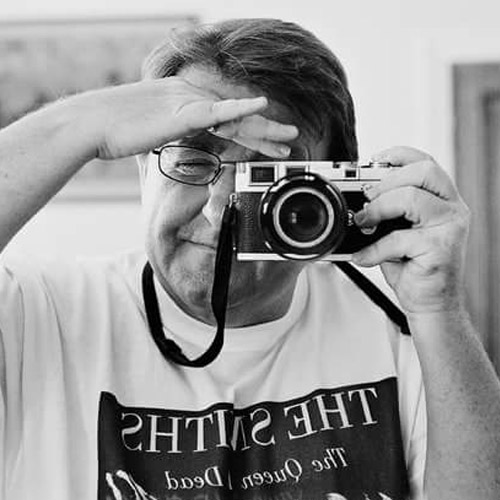Paul Clements
Online Tutor
Although originally from a photojournalism/documentary background, Paul believes in a more conceptual approach that does not hold rigidly to a single paradigm or set of assumptions, but instead draws upon multiple theories, styles and ideas to gain complementary insights into a subject.
Paul's current project "Jerusalem Apostils", is a study of Stane Street, an ancient Roman road built in AD50 and the major south-west, north-east aligned Roman road that linked London with the regional capital of Chichester, parts of which are still in use today. It was the same road that William Blake travelled to Felpham in Sussex where he wrote "Jerusalem" to the opening page of his epic poem Milton, making the Sussex Downs the most likely model for “England’s Green & Pleasant Land”.
Paul is also a member of The National Union of Journalists (NUJ), the British Press Photographers Association (BPPA), The Blake Bloc and the William Blake Congregation.
Four of Paul's career highlights
-
Graduating with a BA (Hons) Photography and immediately enrols in Post Graduate Study in Photojournalism at the London College of Communication, University of the Arts
-
Working for The Scotsman, The Glasgow Herald, The Daily Telegraph and The Sunday Times. Paul works in areas of conflict including The West Bank, Gaza and Northern Ireland. He has also completed a Hostile Environment Awareness Training (HEAT) programme
-
Being a member of the judging panel for pre-selection for the Sony World Photography Awards
-
Having tea and biscuits with Harold Pinter in his writing shed.
A little advice?
MA Photography
Interrogate your photography practice
BA (Hons) Photography (Top-Up)
Develop your creative potential as a photographic practitioner
Student experience
Study online from anywhere in the world
.webp)
